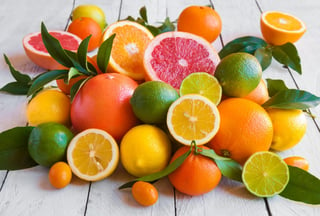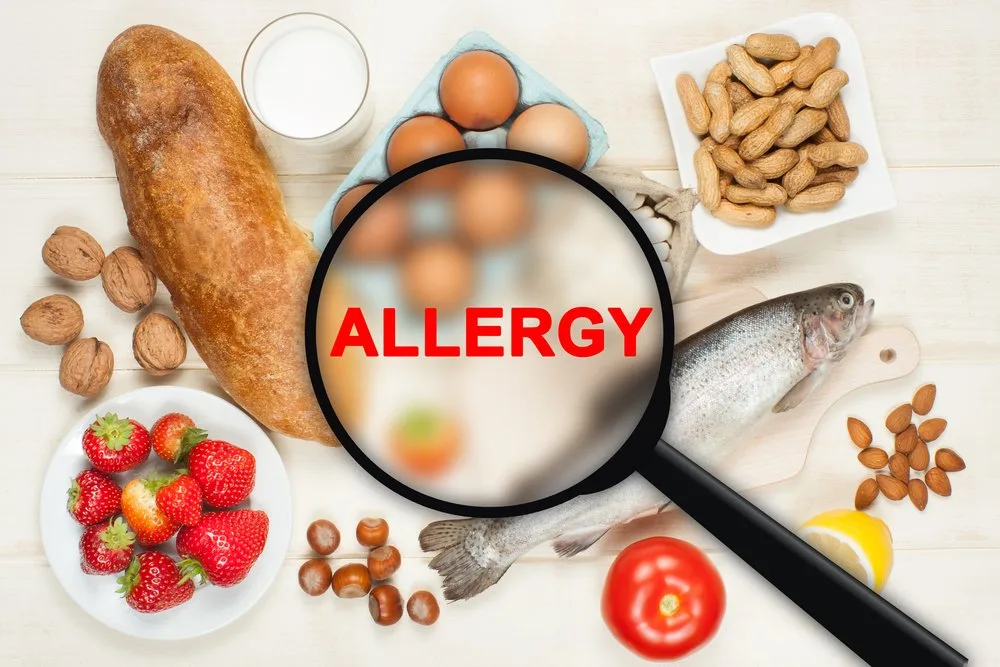Food allergies can be a constant nightmare for approximately 2.5% of the general population, as they make cooking and eating out more of a hassle than they need to be. Allergies are an immune response to foreign materials. Once a food allergen enters the body, the antibody IgE is released and this release triggers responses that indicate an allergic reaction. Such responses include cramps, stuffy nose, nausea, and rashes.
Thankfully, the rise in food allergies has led to a variety of healthy, bountiful substitutes. With these delicious alternatives, you won’t have to think twice when it comes to eating out or cooking.
Alternatives for food allergies
 Citrus
Citrus
While one of the least common food allergies, citrus allergies do occur and symptoms include rashes, asthma, flushed skin, and acid reflux. If you’re looking to replace the zest that citrus adds to your dishes, simply substitute it with either apple cider vinegar or other herbs and spices.
Eggs
Avoiding eggs can be tricky, especially when you consider how they are regularly used as binders, emulsifiers, and leavening agents in many recipes.
An egg allergy is the body’s reaction to the proteins present in the egg. With eggs being so readily used, it’s important to always read food labels. If you’re unable to start the day without enjoying an omelet, then tofu and chickpea flour are all wonderful alternatives if you’re looking to make egg-free omelets. Now if you’re an avid baker, you can replace the eggs with mashed bananas, mashed pumpkin, fruit purées, and flaxseeds as they each make great binding agents.
Milk
Being lactose intolerant or allergic to milk products can cause an upset stomach, wheezing, nausea, vomiting, and even hives.
You can opt for dairy alternatives that include coconut and flax milk.
A good substitute for cow’s milk is organic, sugar-free almond milk. This milk is not only free of low in calories, but it can also help to lower blood sugar, improve heart health, and it’s also high in skin-enriching vitamin E.
Peanuts
Nuts are the perfect snack food due to their high omega-3 fatty acid content. They also help provide a number of health benefits which include improved heart health.
![]() Peanut allergies are common
Peanut allergies are common
According to healthmatch.io peanut allergies are common.
“An estimated 2% of children¹ in the US have a peanut allergy. In this context, an allergy means a potentially life-threatening reaction to peanuts. In contrast, a food intolerance causes discomfort, such as indigestion.”
In extreme cases, a person with a peanut allergy doesn’t even need to eat peanuts to trigger an allergic reaction. Just being in a room with peanuts can lead to anaphylaxis — a severe reaction involving difficulty breathing, swelling of the face and tongue, narrowing of the airways, vomiting, fainting, and hives. Anaphylactic shock requires urgent medical attention, typically a life-saving epinephrine shot.
The Centers for Disease Control & Prevention (CDC) report that between 1997 and 2011, food allergies in US children increased by 50%². From 1997 to 2008, peanut allergies in children tripled.
With peanut allergies increasingly affecting so many children, scientists are developing treatments and working to understand more about food allergies. Fortunately, researchers are making significant headway with clinical trials.
Many allergic reactions are mild to moderate, and they may cause:
-Itchy skin or a rash (hives)
-An itchy feeling in the mouth or throat
-Swelling of the lips, around the eyes, or face
Anaphylaxis is the most troubling symptom, which includes:
-Swelling of the tongue or throat
-Difficulty speaking or swallowing
-Hoarse voice, persistent cough, wheezing, noisy or difficulty breathing
Risk factors for developing peanut allergies include:
-Family history of asthma or having asthma
-Tree nut allergy
-Having eczema
Choose these snacks instead
Luckily, there are other foods that are not only great for snacking, but they’re also extremely high in omega-3s. One food group, in particular, is seeds.
Chia seeds, pumpkin seeds, flax seeds, and sunflower seeds are all great alternatives to nuts. Not only do they come in butter form – but they are also viable options in replacing nuts in baking recipes.
Wheat
Before we suggest wheat alternatives, it’s important to first differentiate between a wheat allergy and celiac disease. Wheat allergy is a food allergy, whereas celiac disease is due to the body’s inability to break down the protein found in wheat- gluten.
An allergic reaction to wheat often leads to rashes, headaches, runny nose, vomiting, and cramps. Our favorite grain alternatives to wheat grain include quinoa, farro, millet, and amaranth. There are also plenty of wheat-free and gluten-free flours that are perfect for an avid baker. These include almond flour, spelt flour, sprouted flour, and coconut flour.
Bottom line
Yes these allergies can be frustrating and often lead to boring and restrictive diets. However, there are plenty of healthy and delicious alternatives out there for you to enjoy. All it takes is a little extra effort, and you’ll be rid of them in no time!
References:
Healthmatch.io: https://healthmatch.io/blog/breakthrough-clinical-trials-for-peanut-allergies




